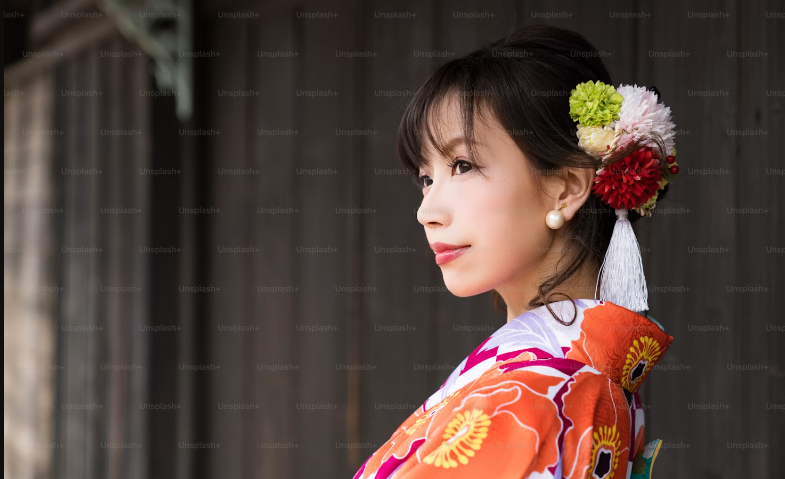Yahatai Kodosai:
Yahatai Kodosai is an annual traditional festival celebrated in Fukuoka, Japan, that highlights the region’s rich cultural heritage and spiritual traditions. This festival is one of the key events in the region, attracting both locals and visitors from all over Japan and beyond. With its combination of vibrant processions, traditional music, dance, and religious significance, Yahatai Kodosai is a unique experience that provides an insightful look into the cultural practices of Japan.
The Origins and History of Yahatai Kodosai
The roots of Yahatai Kodosai can be traced back centuries. Initially, it was a religious festival designed to honor the deities and seek their blessings for a successful harvest. The festival has its origins in Shinto practices, which are deeply ingrained in Japanese culture. Shintoism, a religion based on reverence for nature and ancestral spirits, has always had a strong influence on the rituals of the festival.
Over time, Yahatai Kodosai evolved from a modest agricultural celebration into a grand festival with elaborate floats and community-wide participation. Today, it stands as one of the most iconic cultural festivals in the Kyushu region, celebrating both the region’s agricultural heritage and its spiritual traditions.
Spiritual and Religious Significance
At its heart, Yahatai Kodosai is a spiritual event, with strong connections to the Shinto religion. The festival is deeply tied to the rituals and ceremonies of Shintoism, a religion that emphasizes reverence for nature, spirits, and deities. During Yahatai Kodosai, participants perform rituals, offer prayers, and present offerings to the gods in hopes of receiving blessings for the future.
The most prominent feature of the festival is the procession of large wooden floats. These floats, called “Yahatai,” are symbolic of the gods’ presence and are paraded through the streets of Fukuoka during the festival. The ritualistic aspect of the floats and the spiritual performances during the festival underscore the reverence and respect the local community holds for their religious traditions.
Key Features of Yahatai Kodosai
1. The Yahatai Floats
One of the most striking aspects of Yahatai Kodosai is the procession of wooden floats, known as “Yahatai.” These are large, intricate, and beautifully crafted structures, often decorated with vibrant paintings, religious symbols, and other decorative elements. The floats are typically about three to four meters tall, and they are designed to represent different deities or important historical events.
The floats are pulled through the streets by groups of people, each responsible for guiding their float. The local community plays a central role in the construction and decoration of these floats, making it a truly communal activity. The participants work tirelessly to create these works of art, ensuring that each float is a masterpiece of craftsmanship. The floats are also designed to carry symbols of the gods, making them sacred objects during the procession.
2. Traditional Music and Dance Performances
In addition to the float procession, Yahatai Kodosai features a range of traditional Japanese performances. These performances include music played on traditional instruments, such as the taiko (Japanese drums) and shamisen (a three-stringed instrument), as well as energetic folk dances. These performances add to the festive atmosphere and provide entertainment for both participants and spectators.
The rhythmic beats of the taiko drums and the haunting sounds of the shamisen set the tone for the celebrations, while dancers clad in traditional costumes perform intricate movements that are passed down through generations. The dance styles vary, with some inspired by ancient Shinto rituals, while others are more contemporary folk dances that have become popular over time.
3. Community Involvement
Yahatai Kodosai is not just a festival for spectators; it is a celebration that involves the entire community. The festival is organized by local residents, who actively participate in the planning and execution of the event. From the construction of the floats to the preparation of food stalls, the people of Fukuoka come together to ensure the festival’s success.
Community involvement is a key feature of Yahatai Kodosai, as it strengthens the bonds between residents and fosters a sense of unity and shared purpose. Many of the rituals and performances are passed down through families, with each generation playing an active role in keeping the tradition alive.
4. Street Processions
The highlight of Yahatai Kodosai is the grand procession of floats through the streets of Fukuoka. These floats are carried and pulled by teams of people, each float accompanied by chanting and rhythmic drumming. The procession moves through the city, often stopping at various points where rituals are performed to honor the gods. Spectators line the streets to witness the grandeur of the floats and to participate in the joyous atmosphere.
The procession is a sight to behold, with brightly colored lanterns lighting up the streets and traditional music filling the air. It is not just a religious event but a lively celebration that brings the entire city together. The float procession is a symbol of the community’s deep-rooted spiritual beliefs and its commitment to preserving these traditions for future generations.
Preparing for a Visit to Yahatai Kodosai
If you are planning to attend Yahatai Kodosai, it’s important to prepare in advance. Here are some essential tips to help you make the most of your visit:
1. Timing
Yahatai Kodosai usually takes place in the summer, typically in July or August. However, the exact dates can vary each year. It’s best to check local event calendars or contact the event organizers to confirm the dates before making travel plans.
2. What to Wear
While traditional Japanese clothing like yukata is often worn by festival participants, comfortable and weather-appropriate clothing is recommended for visitors. The festival can involve long hours of walking and standing, so make sure to wear comfortable shoes. You may also want to bring a hat or sunscreen if the weather is particularly hot, as the festival takes place during the summer months.
3. Accommodation
Fukuoka offers a variety of accommodations for visitors attending the festival. Since Yahatai Kodosai is a major event, it is recommended to book your accommodations well in advance, especially if you plan to stay near the festival grounds. There are many hotels, ryokan (traditional inns), and guesthouses available in and around the city.
4. Food and Drink
Yahatai Kodosai features numerous food stalls offering traditional Japanese street food. Don’t miss the chance to sample local dishes such as yakitori (grilled chicken skewers), takoyaki (octopus balls), and okonomiyaki (savory pancakes). These foods are not only delicious but add to the overall festival experience.
Conclusion
Yahatai Kodosai is a festival that offers a unique and immersive experience into Japanese culture, traditions, and spirituality. From the stunning Yahatai floats to the vibrant street performances, every aspect of the festival reflects the deep-rooted cultural heritage of the Fukuoka region. It is a celebration that unites the community and allows visitors to engage with Japan’s rich history and artistic traditions.
Whether you are drawn to the festival for its religious significance, its cultural performances, or simply to experience the joyous atmosphere, Yahatai Kodosai is an event that should not be missed. The energy, enthusiasm, and sense of community are palpable, making it a truly unforgettable experience.
Frequently Asked Questions (FAQs)
1. What is Yahatai Kodosai?
Yahatai Kodosai is an annual festival held in Fukuoka, Japan. It is known for its procession of large, intricately designed wooden floats, traditional music, and dance performances.
2. When is Yahatai Kodosai celebrated?
The festival typically takes place in the summer, with the most common dates being in July or August. The exact dates may vary each year.
3. What are the Yahatai floats?
The Yahatai floats are large wooden structures decorated with religious symbols and artwork. They are paraded through the streets during the festival as part of a grand procession.
4. Can visitors participate in the festival?
Yes, visitors can join in the festivities by watching the performances and enjoying the street food. However, certain religious rituals are reserved for locals.
5. How can I get to Fukuoka for the festival?
Fukuoka is easily accessible by air, with Fukuoka Airport serving as the primary gateway. Visitors can also travel by train or bus from other parts of Japan.
6. What should I wear to Yahatai Kodosai?
While traditional clothing like yukata is common, comfortable clothing is recommended for visitors. Be sure to wear comfortable shoes for walking and standing.
7. Are there accommodations available near the festival site?
Yes, there are many hotels and guesthouses near the festival grounds. It is recommended to book accommodations in advance due to the festival’s popularity.





